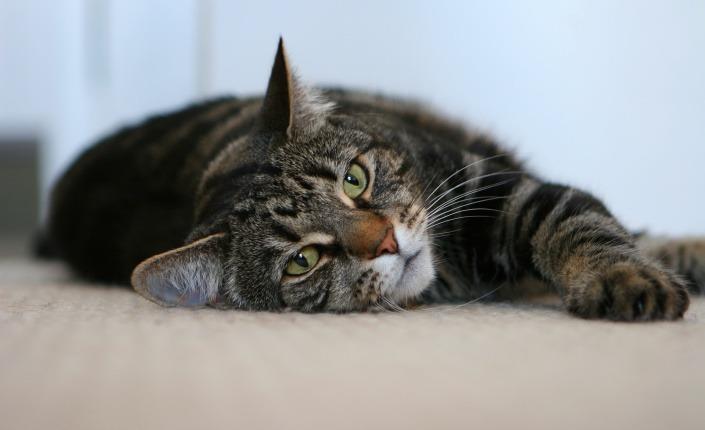Cats, Dogs and Fireworks: Keeping Your Pets Safe and Happy

Storms and fireworks come with sudden, loud noises and flashing light that can startle just about anyone. The sharp senses of our pets are able detect even more changes than we do, such as vibrations, smells, and changes in atmospheric pressure and electricity. It’s not a surprise that some pets become quite fearful during these events. Any age, size, or breed of pet may be affected. Fear in pets can be displayed as freezing, pacing, panting, trembling, crying, hiding, clinginess, or excessive barking. In severe cases, pets can even injure themselves or destroy property with their fearful behaviour or attempts to escape.
If you suspect that your pet is afraid of fireworks or thunderstorms, it’s important to keep them inside during these events. This will help shelter them from the noise and environmental changes, but also protect them from loss or injuries that can occur if they try to escape. Our veterinary advisor, Dr. Jennifer Sperry, recommends bringing your pet to a well insulated interior room, like a bathroom or a basement room, where noise and flashes will be less dramatic. Here are some other great tips:
- Keep a radio or TV on a moderate volume to decrease the sense of “suddenness” of the outside noises.
- Stay with your pet to keep them calm and comforted.
- Provide cats with a sheltered or covered place to hide, such as a box, travel crate, or even a quiet corner. Placing food, water, and a litter box nearby may help them feel more comfortable.
- Distract your dog with pleasant treats like a stuffed Kong or treat puzzle.
- Consider non-prescription calming aids such as a Thundershirt, Feliway/Adaptil, or vet-approved calming supplements.
Fireworks safety is paramount for both people and pets. Always keep your pet on a secure collar, harness, and leash. If you plan on using fireworks at a family event, you will need to restrain your pet a safe distance away from the detonation area to avoid fire hazards, heat, sparks, and debris. If your pet has never experienced fireworks before, or if you suspect they are fearful, it may be best to leave them at home where they’ll be comfortable.
The explosive and colourful compounds in fireworks can be toxic on skin contact or ingestion. Make sure to keep fireworks out of reach of children and pets, and thoroughly clean up stray fuses, caps, and cardboard after the festivities. If you suspect your pet has come into direct contact with fireworks, contact your veterinarian, or the pet poison helpline immediately.